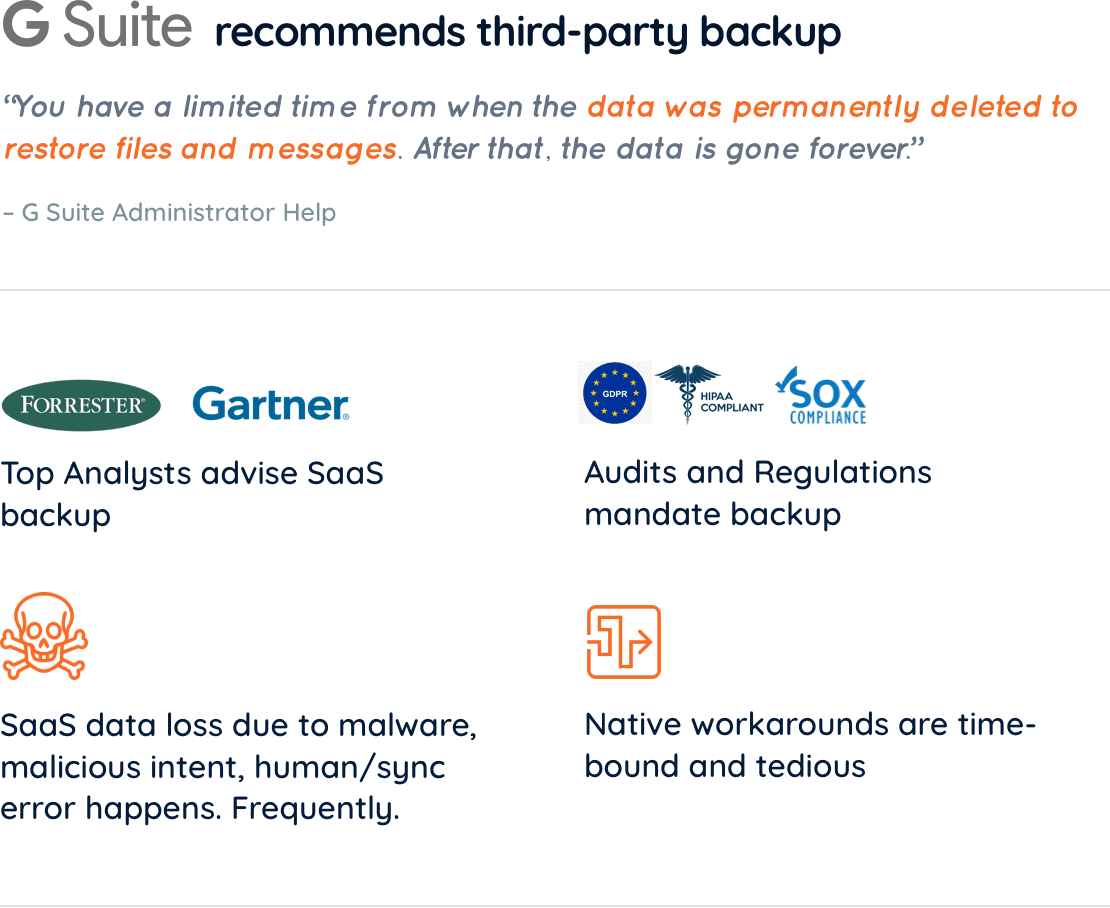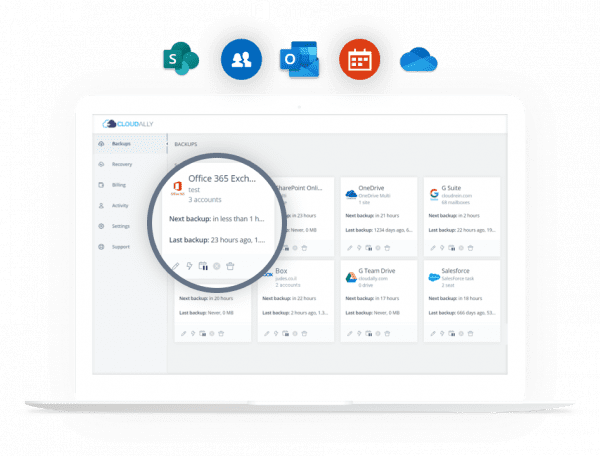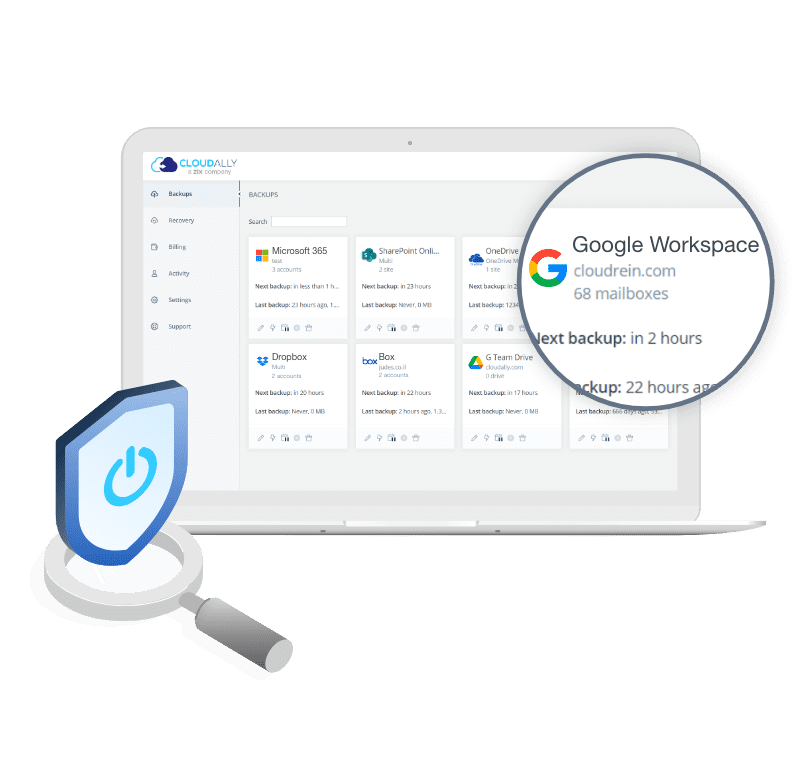

Even should Google Drive fail you, the company is there to help restore your data. And Google’s cloud-based file storage solution rarely fails.
#Enterprise g suite backup professional#
Millions of users depend on Google Drive, for both personal and professional work. Image: juststock, Getty Images/iStockphoto Here are five solid backup tools that will provide you with a safety net for nearly every situation. When it comes to backing up your Google Drive data, you have numerous choices. Having BDR cloud backup service outsourced will mean you can avoid the uncanny situation where the CEO is scrambling to get back some emails that customer support has deleted a while ago.Google Drive backup solutions for just about any use case However, they will still need maintenance from company staff – most of whom may not have the time or the expertise to dedicate to G Suite backup and disaster recovery operations.
#Enterprise g suite backup free#
Free accounts, for example, are limited to 30GB of space. The amount of free storage each user gets depends on the type of account they have. Users who have exceeded their Google Drive storage quota will no longer be able to restore their data. Moreover, Google Drive retention policy is the same as Google Apps: after you delete a document, you can recover only for 30 days after deletion. The list of issues that might occur with Google Drive sync is long, so data loss can happen even due to a bad sync. So if you have deleted a file from the cloud, you may not be able to find it in your local folder anymore. But when this folder is synced, what is saved to the local drive is a pointer of where the document is online, in the cloud, not the document itself. Unfortunately, many users mistake Google Drive for a backup. It has a local folder that can be used for working offline. Google Drive is one magic tool that has made life easier for millions of professionals. G Suite cannot prevent end-user errors that result in accidentally deleted files and folders.Deleted Gmail emails after Trash has been emptied cannot be recovered or restored.G Suite will empty your Trash folder automatically, every 30 days.So here are the most important issues that G Suite users need to be aware of:

G Suite / Google Apps policy is very specific about G Suite data backup & restore. G Suite (Google Apps) Data Retention Policy

However, nothing can bring back a document after a disgruntled employee has removed it. Once you change a document, you will be able to revert to a previously known version if something goes wrong. Apps like Google Docs or Google Sheets have versioning capabilities. And if it can happen to Apple co-founder Steve Wozniaki to lose data, it can happen to you. The human "oops moment" is followed by hacking incidents, closing accounts without regard for data, and malicious actions that lead to lost files and folders. And this becomes a scary statistic, when 16% of the documents uploaded to the cloud contain sensitive information. The top cause for data loss it is human error. Thirty two percent of the companies that are using SaaS services have reported data loss. Let that sink in for a moment. So let's explore some of the issues posed by Google Apps. err, G Suite ( name changes are always confusing) backup and recovery abilities. But working on the same file as your co-workers may lead to disaster. The benefits of easy collaboration, accessibility and reduced costs are enough to convince anyone to hop on the cloud train. The cloud has been adopted by millions of businesses around the world.


 0 kommentar(er)
0 kommentar(er)
